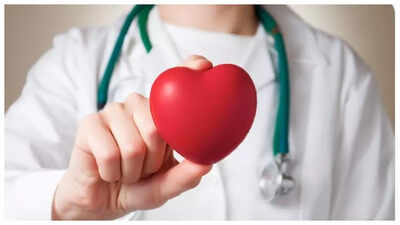When we talk about heart disease, the first symptom that comes to mind is chest pain and palpitation. However, as unfortunate as this might be, chest pain is (usually) never the first sign of heart disease. The first sign of heart disease can actually, appear months (or even years) before the condition comes to the fore, and while it is easily ignored, it can turn out to be extremely helpful in detecting a heart condition early on, and preventing a potential heart attack, which could have been inevitable otherwise.The first sign of heart disease is extreme fatigueNo, we are not talking about “feeling tired after a long day at work” kind of fatigue. We are talking about constant fatigue that zaps you in the morning, even before you have started your day, and one that makes it impossible for you to walk even for a few minutes without getting all huffed and puffed up. But why does this happen? Let’s find out..Your heart is a powerful muscle that pumps blood and oxygen to every part of your body. When the heart is not working well, it struggles to supply enough oxygen-rich blood to your muscles and organs. This lack of oxygen causes your body to tire quickly, even during simple activities.

The relationship between heart disease and fatigueReduced Blood Flow: Heart disease, especially coronary artery disease, narrows or blocks the arteries that supply blood to your heart. This reduces the heart’s efficiency.Lower Oxygen Supply: When the heart can’t pump enough blood, muscles and tissues receive less oxygen, making you feel tired.Extra Work for the Heart: The heart tries to compensate by working harder, which can cause you to feel exhausted.Fluid Buildup: Heart failure can cause fluid to build up in your lungs and other parts of the body, making breathing harder and increasing fatigue.Because of these changes, even routine tasks like climbing stairs, walking short distances, or doing household chores can leave you feeling drained.Why Fatigue Is Often Ignored or MisunderstoodExtreme fatigue is a very common symptom and can happen for many reasons, such as stress, lack of sleep, poor diet, or busy lifestyles. Because it is so common and vague, many people don’t realize it could be a warning sign of heart disease.Reasons Fatigue Is OverlookedIt Feels Normal: Many people think feeling tired is just part of everyday life, especially if they have demanding jobs, family responsibilities, or stressful situations.No Pain, No Alarm: Unlike chest pain, fatigue doesn’t cause immediate alarm. It’s not sharp or scary, so people tend to ignore it.Attributing to Other Causes: Fatigue is often blamed on poor sleep, depression, or aging, rather than being linked to heart health.Lack of Awareness: Many are unaware that fatigue can be a symptom of heart disease, so they don’t seek medical advice early.Ignoring fatigue can delay diagnosis and treatment, increasing the risk of serious heart problems later.

How to Recognize Fatigue as a Warning SignWhile feeling tired occasionally is normal, extreme fatigue related to heart disease has some specific features:Unusual and Persistent: The tiredness is stronger than usual and lasts for weeks or months.Not Relieved by Rest: Unlike normal tiredness, this fatigue doesn’t go away even after a good night’s sleep or rest.Limits Daily Activities: You find it hard to do things you used to do easily, like walking, climbing stairs, or doing chores.Accompanied by Other Symptoms: You may also notice shortness of breath, swelling in legs or ankles, dizziness, or irregular heartbeat.If you experience these signs, it’s important to talk to a doctor for proper evaluation.Why Chest Pain Usually Comes LaterChest pain or discomfort, known as angina, typically appears when the heart muscle is significantly deprived of oxygen. This usually happens after the disease has progressed for some time.Fatigue Comes First: Fatigue signals that the heart is struggling to keep up with the body’s demands.Chest Pain Signals Damage: When the heart muscle itself starts to suffer from oxygen shortage, chest pain appears.Not Everyone Gets Chest Pain: Some people, especially women, older adults, and people with diabetes, may never experience typical chest pain even during a heart attack.This means relying only on chest pain as a warning sign can be dangerous.What should you do if you are always tiredDon’t Ignore It: Take your fatigue seriously, especially if it’s unusual or lasts a long time.See a Doctor: Early check-ups can detect heart disease before it causes serious damage.Get Tests Done: Your doctor may recommend tests like ECG, stress tests, or blood tests to check heart health.Adopt a Healthy Lifestyle: Eat a balanced diet, exercise regularly, avoid smoking, and manage stress.Monitor Other Symptoms: Keep track if you develop other signs like shortness of breath or swelling.
